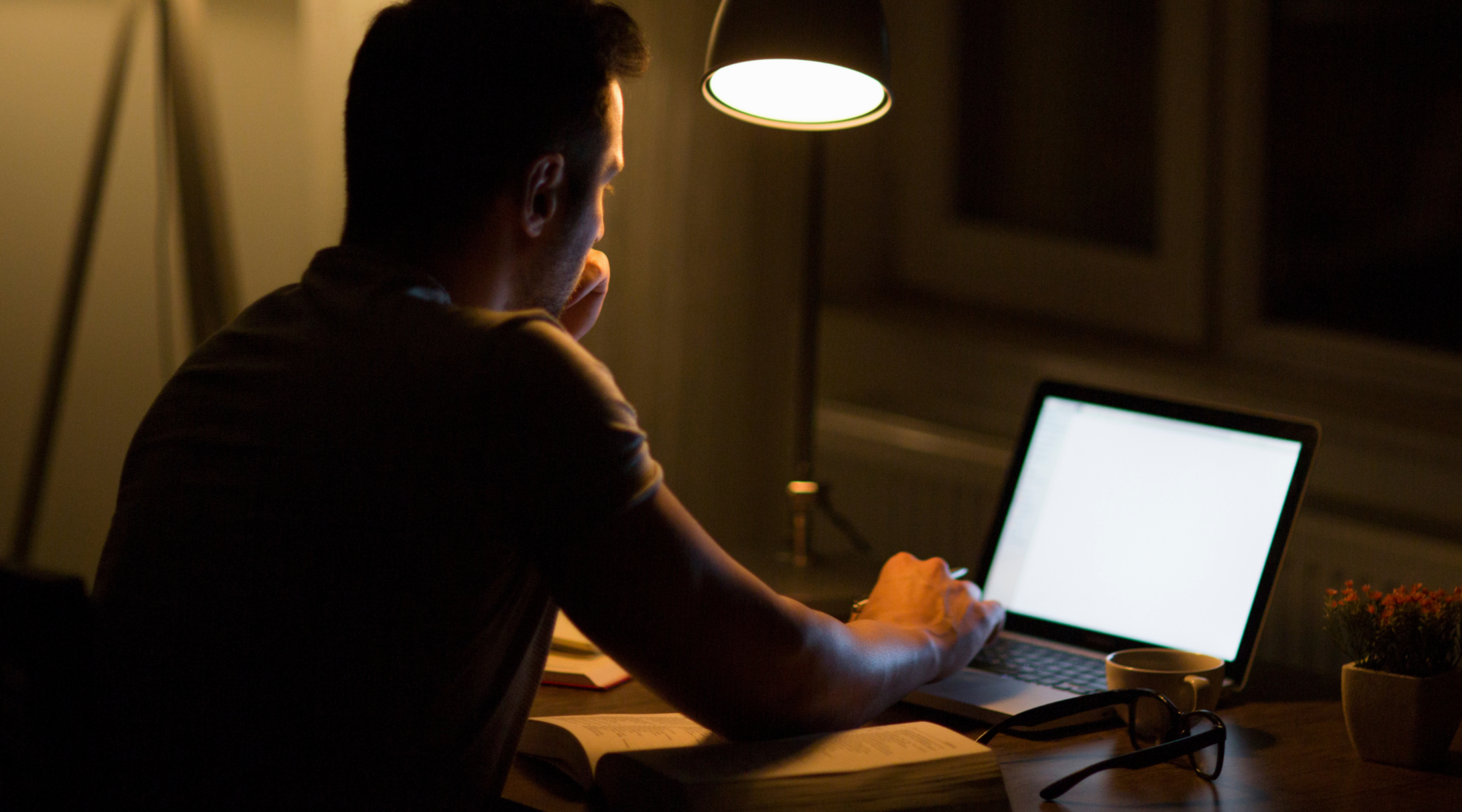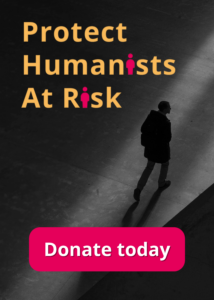
Humanists at Risk: Atal’s Story
I realized the journey from a devout Muslim to an Atheist wasn't just a rebellion; it was about seeking the truth and being true to myself.

I realized the journey from a devout Muslim to an Atheist wasn't just a rebellion; it was about seeking the truth and being true to myself.
In the intricate social fabric of Afghanistan, where Pashtun and Tajik tribes coexist, I emerged into a world deeply rooted in religious tradition. The Pashtun tribe, notably recognized for its strong adherence to religious and traditional values, played a pivotal role in shaping my early experiences.
My father, an Islamic scholar (Mula), and my mother, an uneducated housewife, imparted the values of our Pashtun heritage to me. Amidst the chaos of war, my father, a migrant in Pakistan, envisioned a brighter future for his children through the pursuit of modern sciences. So, I ended up studying both Islamic and modern sciences. It was a bit like juggling—one for my life and a brighter future, and the other for my society and my Islamic beliefs. This dual education became a delicate balancing act.
In 2017, I began my University studies. At that juncture, I was a modern, religious individual, fervently praying five times a day and reciting the Quran each morning. The achievement seemed like a testament to divine guidance, with my relatives and society rejoicing in my success. Little did they know that my dedication extended beyond prayers; I spent over 11 hours daily immersed in my studies. It was the commitment to education that opened the doors to the university, not solely the act of prayer.
 These questions bothered me, but I kept away from questioning Islam. Until one day, my brother and I started discussing these things; secretly he had also been questioning Islamic norms. At first, I defended Islam, but as we dug deeper, I realized he had a point. That’s when I dared to question Islam.
These questions bothered me, but I kept away from questioning Islam. Until one day, my brother and I started discussing these things; secretly he had also been questioning Islamic norms. At first, I defended Islam, but as we dug deeper, I realized he had a point. That’s when I dared to question Islam.
I started looking up stuff on the internet, trying to understand the realities of Islam. Slowly, I found answers to why girls and women in my society were treated unfairly. I learned how religious leaders manipulated people for personal gain. It wasn’t easy, but after six months, I looked back and saw a 180-degree change in my life.
I became an Atheist because I witnessed the injustice in my society.
I saw how war leaders and corrupt people are using innocent people and religious beliefs. How religion is playing a crucial role in the continued war in my country. I was always thinking about why the war continues in my country, and why people don’t think that they are on the wrong path. However, I was not able to find the answers to these questions until I became an atheist.
Reflecting on this transformation, I realized the journey from a devout Muslim to an Atheist wasn’t just a rebellion; it was about seeking the truth and being true to myself.
Since embracing atheism, my experiences have been a rollercoaster. One notable shift has been in my perspective towards non-Muslims. In my devout Muslim days, I harbored baseless animosity towards them simply because they didn’t share my faith. Islamic teachings had instilled this prejudice in me. Now, as an atheist, I’ve shed that unfounded hatred.
I’ve come to realize the detrimental impact of Islam on my society. The religion becomes a tool for war leaders to manipulate innocent minds, fostering a mindset driven by Islamic laws to perpetrate violence. Islamic norms, I’ve observed, hinder girls and women in my society from pursuing education and work. The focus on Jihad and war eclipses other essential aspects of life.
Being a Muslim granted me a misguided sense of entitlement to intervene in others’ lives, imposing my beliefs on them. It was an erroneous privilege bestowed upon me by Islam. In my country, non-Muslims face systemic discrimination. The societal narrative dictates that only Muslims are on the right path, perpetuating a closed-minded attitude towards other faiths.
Islamic teachings propagate hostility towards those who reject the faith. Consequently, secrecy becomes a survival instinct for atheists. Even my own brother refrained from revealing his atheism for fear of reprisal.
This silence left me feeling isolated, a sentiment compounded by the pervasive influence of Islam on every aspect of society. From education to festivals, Islamic principles dictated the norms, making it challenging to dissent. The struggle was not just intellectual but also practical; I found myself having to navigate a society filtered through the lens of Islam while harboring views that contradicted its teachings.
At times, I had to play a charade, attending mosque prayers to avoid punishment and further isolation. It was a delicate dance between self-preservation and conformity.
As I sought out fellow atheists, I discovered a community of individuals grappling with similar challenges. Many dared not challenge the societal structure entrenched in Islamic laws. My attempts to open dialogues, such as organizing debates at University, focused on questioning Islamic norms that hinder women’s education and work. Despite maintaining a respectful tone, the consequences were severe and my life became endangered.
In August 2021, the collapse of the government of the Islamic Republic of Afghanistan marked a dire turning point as the Taliban, an extreme religious terrorist group, assumed control. Faced with imminent threats, I had to abandon my city and seek refuge in Kabul, the capital. Even in this new sanctuary, the shadows of danger loomed, with unidentified individuals making threats—individuals likely among those who had attended my debates at the university.
Amidst this perilous situation, I reached out to Humanists International for help. I was aware the organization faced significant challenges in identifying and supporting those in need. Thankfully, once my identity had been confirmed and the gravity of my situation was realized, they were able to help. As the danger escalated, I made the difficult decision to leave Afghanistan and head to Pakistan. During my crisis, Humanists International consistently inquired about my wellbeing and guided me in finding a secure haven.
Humanists International went beyond moral support; they penned support letters advocating for my safety and asylum applications, which I attached to my applications for master’s scholarships. Their unwavering support played a crucial role in securing a scholarship for me. Upon receiving the scholarship and relocating to [a safe foreign country], Humanists International continued to be a pillar of support. They introduced me to groups and individuals in the country, facilitating the expansion of my network and the forging of new friendships.
Humanists International played a pivotal role in supporting me during a critical juncture in my life.
The support I’ve received often leaves me feeling overwhelmed with gratitude. It goes beyond what I could have asked for, and I am genuinely thankful for their unwavering assistance. The support letters they provided helped to strengthen my scholarship applications, ultimately enabling me to secure a spot in a master’s program in Data Science here in my new country. This transition to a safe and secure environment has not only opened doors for my academic pursuits but has also provided a haven for me during a tumultuous period in Afghanistan.
The change in my circumstances, from navigating threats in Kabul to pursuing my education abroad, underscores the profound impact of Humanists International’s support on my life. It’s not just about tangible assistance; it’s about the empowerment and sense of security they have bestowed upon me, creating a foundation for a brighter future.
Having arrived here and secured a scholarship, my hopes for the future have been revitalized.
I envision a brighter and better future, one where I can actively contribute to positive change. In this secure environment, I aspire to be a catalyst for promoting atheism and humanism in my society. My journey, marked by challenges and transformative experiences, fuels my determination to make a meaningful impact and advocate for the principles I believe in. The support I’ve received has not only offered me safety but has also instilled in me a sense of purpose for the future.
Thanks to our members and supporters, Humanists International is able to employ a caseworker to support people like Atal. However it would not be possible to continue to provide this service without the help of the global humanist community. Every month on average we receive 17 requests for help. Please show your solidarity and support with a donation to support a humanist like Atal today.
If you believe every humanist should have the right to a life free from persecution, please show your solidarity and support with a donation today. With your support, we can continue to help as many people as possible in the weeks and months ahead.
Good to know
Humanists International is an international NGO founded in 1952 with a track record of success when it comes to supporting people at risk of religious persecution. The money raised by this appeal will be used to support humanists at risk, including the associated campaigning, support and legal costs. Humanists International 2020 is a Scottish (UK) charity no. SC050629. If you would prefer to give by bank transfer or another way, please email [email protected]
Header image credit: Ridvan Celik from Getty Images via Canva